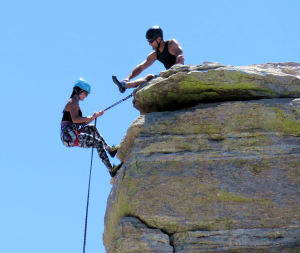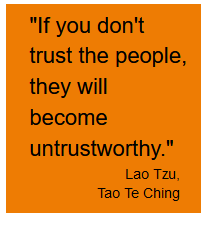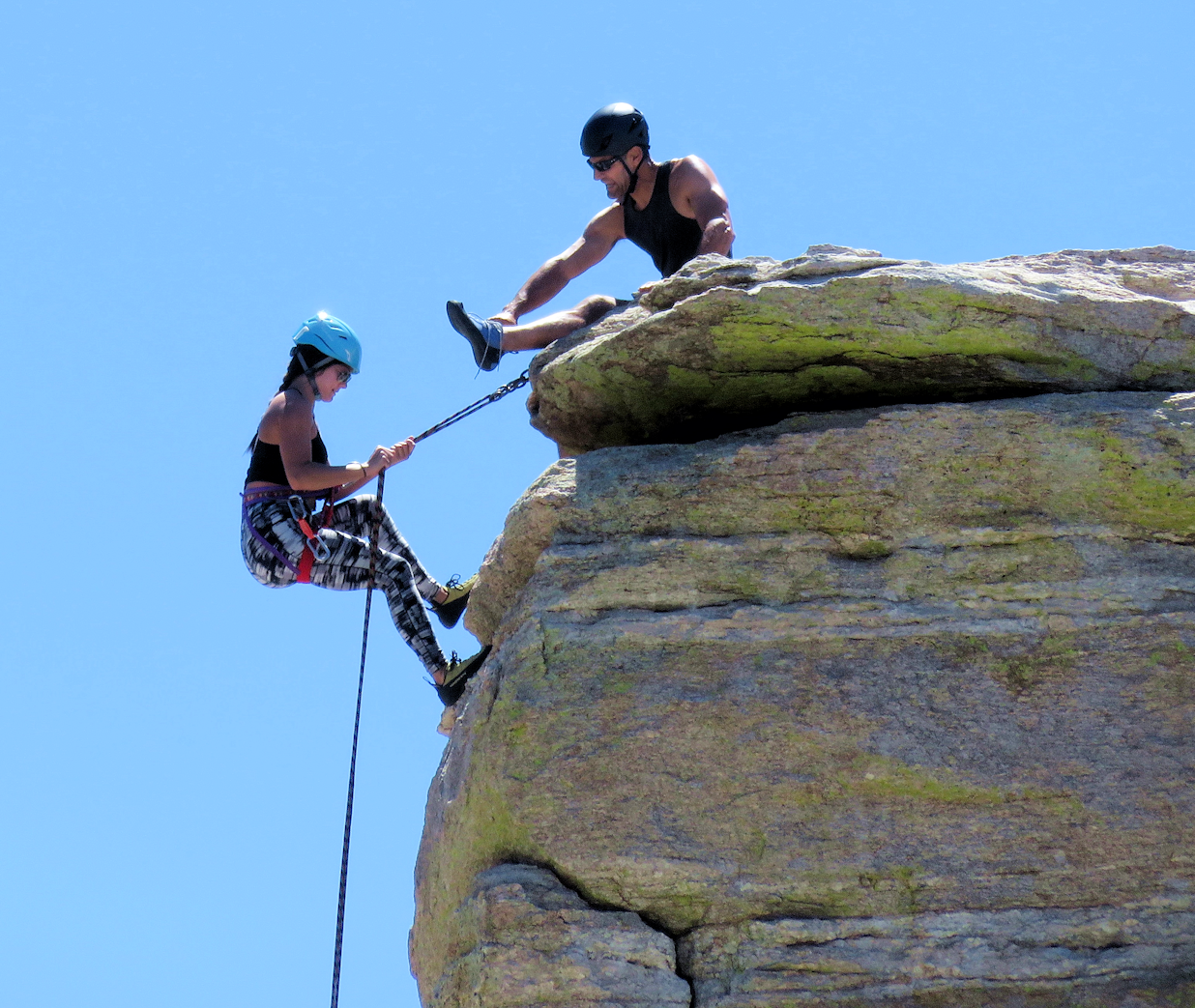Current e-Journal
-

May 7, 2024

Do you trust your community?
In this week’s Systems Change Newsletter…
• Invitations & Announcements
• Catalytic Thinking Exercise: Do you trust your community?
• Resources to Further Your Practice
Invitations & Announcements:
Designing Equitable Hiring Practices via Catalytic Thinking
At our May Integrity conversation, we will continue designing equitable, inclusive, and joyful hiring and contracting processes by applying Catalytic Thinking. This has been such an exciting exploration so far, and it just keeps getting more so. Want to learn alongside us? Click now!
Catalytic Thinking Exercise:
Do you trust your community?
Lately the topic of community engagement has been a big focus for many of Creating the Future's partners around the world.
One group is making plans for a years-long engagement effort, to energize a whole sector around its power to create change. Another just completed a 6-month effort that will be the basis of their planning process moving forward. Another is focused on voter engagement in preparation for the 2024 election in the U.S.
As we’ve worked with those partners to help bring their communities together, one thing has become clear:
Engagement goes hand-in-hand with trust.
Social change organizations spend a lot of time trying to gain the trust of our communities. We apply for professional certifications, hire the best staff, try to communicate what we’re working on – all towards the goal of having our communities trust us.
That is NOT the topic of this newsletter today. Instead, we’re focusing internally:
Do we as changemakers trust our communities?
We certainly know what it looks like when organizations DO NOT trust their communities - or even their own staff.
- Closed board meetings, where even staff aren’t permitted to speak (if they are even permitted to be in the room).
- Strategic planning sessions that exclude community members – the very people you will be making plans about.
- Hoarding information and learnings, so that “the competition” (i.e. people who care about the same things you care about) won’t “steal your idea.”
- Human resource policies built upon the assumption that folks are going to mess up
So many of the standard ways of operating in the social change ecosystem are built upon that lack of trust. And it’s not just traditional nonprofits – it’s social enterprises and government programs as well. That lack of trust is all fear-based – the fear of not being in control. These standard ways of operating might as well be called Lessons from an Organizational Control Freak!
We fail to trust the people in our communities,
and yet we expect all those people to trust US.
What, then, would it take for YOU to trust your community?
Try this:
First, it might be helpful to set the stage with your own intentions to build trust. And while our focus here is on trusting your community, this can just as easily apply to trusting your staff or your family members.
So first, ask these 2 questions together (not just one, but BOTH these questions):
- What’s the worst that can happen if you let go and trust your community?
- And what’s the worst that can happen if you do NOT trust your community?
The answer to that first question is the stuff we so often default to. People may be wrong. They may ask for things that are impossible. We might set ourselves up to fail.
It is that second question that we rarely ask ourselves. The answers there, however, are the most powerful.
If you do not let go and trust your community, they will likely not trust you. You will probably have to work harder to convince people that your work has meaning, and in reality, without community input, it may not have meaning. Donors (who are also members of your community) may stop giving, because if you don't trust your community members, will you trust your supporters? You may even become LESS competitive when seeking contracts, as organizations who DO trust are more likely to build the relationships that lead to success.
That sure puts things in perspective!
Once you have decided to focus on building your own trust, a simple first step is to listen to your community.
And not just any listening… Catalytic Listening.
Most listening in the social change arena is listening for what’s wrong. We do assessments to determine community needs – the holes to be filled in. We do surveys asking, “What are the top 3 problems facing our community?”
Catalytic Listening encourages us to instead listen for the aspirations of our community members. “What would GOOD look like in our community? What would need to be in place for that result to become reality?”
Catalytic Listening also encourages us to think about people’s values. “As we reach for that healthy, humane, equitable community, what values are important for us to uphold? And importantly, what would those values look like in action as we do our work?”
These are clearly questions your community members can answer. Their answers will give you profound insights into how wise the people in your community are – how much you can, absolutely, open your doors and trust them. The act of asking these catalytic questions can open a crack in the seemingly solid veneer of your organization, giving you the basis for asking more and more, opening the door a bit more, engaging more – not as “us in here engaging with you out there,” but as one big “us together.”
As you have these conversations, you will be thinking together, learning from each other’s wisdom. And that is a great start for building trust.
As the old adage goes, “Change happens at the speed of trust.” By opening that door to trust others, we are creating the conditions for magic to happen, because we are all creating that magic together.
That is why these questions are at the heart of the Catalytic Thinking framework.
Resources to Further Your Practice:
- READ: This step-by-step chronology of Creating the Future’s own community engagement efforts can help guide your own plan. Follow along here…
- READ:The first step in building trust is getting to know each other. Read “Stories of Building Trust” here…
- READ: The systems that changemakers rely upon to support their work are almost all built upon MISTRUST. See what is possible here…
Help Keep Our Programs Freely Available
Creating the Future’s eJournal is free. And there are no financial barriers to our classes – tuition is whatever folks can afford. Because we never want money to stand in the way of people learning.
If you value our content and our approach, please donate here – and please consider becoming a monthly supporter of our work.
eJournal Archives:
If you’re new to our eJournal, or just want to remind yourself of past practice exercises we’ve shared, check out our eJournal archives here.
SUBSCRIBE
to get this e-Journal
Creating the Future is a 501(c)(3) tax exempt organization in the U.S.A


